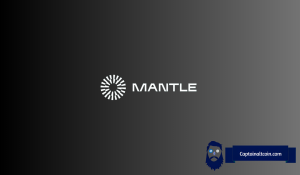Pavel Durov Refuses to Censor Moldova Election Content on Telegram

- Pavel Durov accused French intelligence of attempting to pressure Telegram into censoring election-related content in Moldova and Romania.
- He refused these censorship requests, emphasizing the importance of free speech and democratic principles.
- Durov’s stance underscores broader conflicts between tech platforms and European authorities over content regulation and privacy.
- His arrest in France in August 2024 intensified debates over government attempts to control online discourse.
- The Telegram founder remains vocal against EU proposals to monitor encrypted communications, warning of threats to digital privacy and free expression.
In a bold statement, Pavel Durov, co-founder of Telegram, accused French intelligence agencies of pressuring the messaging platform to censor political content related to Moldova’s upcoming 2024 elections. Durov said the authorities sought to exchange leniency in his ongoing trial by requesting censorship, but he refused to comply.
While Telegram initially removed posts that explicitly violated its terms of service, Durov revealed that subsequent demands targeted content that was fully compliant yet politically inconvenient for the French and Moldovan governments. The platform refused to bow to these politicking efforts, asserting a stance for free expression.
The incident highlights the tense climate between free speech advocates and state authorities, especially in regions where digital rights and privacy are increasingly under threat. Following Durov’s arrest in France in August 2024, there has been significant backlash from the crypto community and human rights groups, condemning the government’s approach and its potential implications for online privacy and digital freedom.
European Authorities’ History of Content Suppression
In May 2025, Durov recalled earlier instances where French intelligence agencies pressured Telegram to censor content related to Romanian elections, which he also rejected. “You can’t ‘defend democracy’ by destroying it,” he remarked, emphasizing the contradiction in trying to combat election interference through suppression rather than transparency and free speech.
Critics and supporters alike are watching closely as Durov’s comments reflect broader concerns about increasing state intervention in digital spaces. His vocal opposition, combined with his arrest, underscores ongoing debates about the limits of government power and the future of online privacy.
In June, Durov warned that France’s policies threaten societal stability, criticizing what he described as failed government tactics that could lead to societal collapse. He also reiterated Telegram’s commitment to refusing government backdoors, stating the platform would exit jurisdictions such as France if forced to compromise user encryption for surveillance purposes.
The confrontation escalates as the European Union considers legislation aimed at surveilling encrypted communications, a move Durov has openly opposed. Critics argue such measures threaten the core principles of digital privacy and free speech—a topic gaining momentum amid increasing regulation of cryptocurrencies, blockchain technology, and online content.
This ongoing struggle highlights the critical importance of digital rights within the crypto and blockchain space, as platforms and advocates push back against government overreach to maintain decentralization and privacy protections.
This article was originally published as Pavel Durov Refuses to Censor Moldova Election Content on Telegram on Crypto Breaking News – your trusted source for crypto news, Bitcoin news, and blockchain updates.
You May Also Like

Here’s Why Mantle (MNT) Price Is Pumping Today

Cashing In On University Patents Means Giving Up On Our Innovation Future
